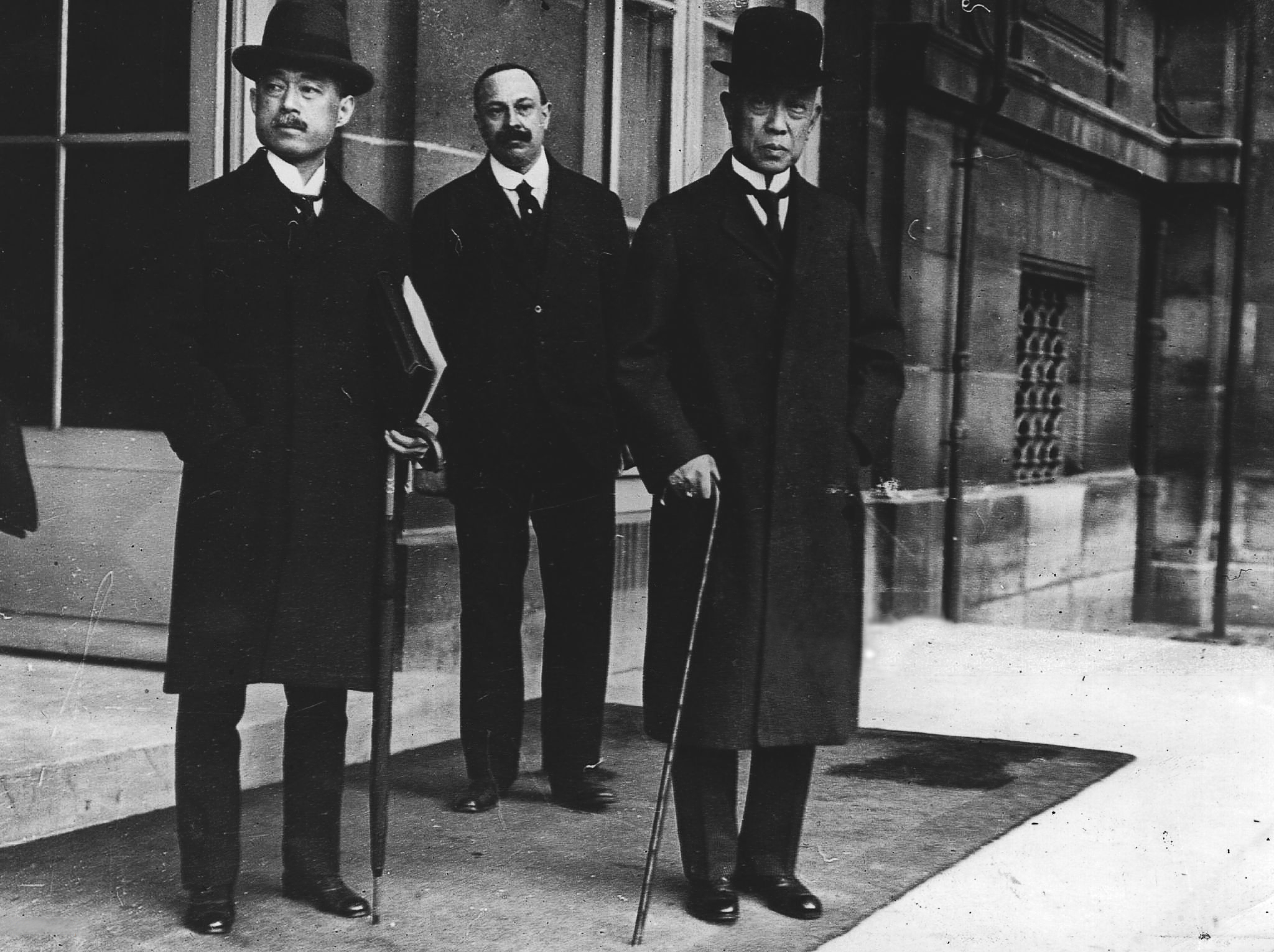genrō on:
[Wikipedia]
[Google]
[Amazon]

 was an unofficial designation given to a generation of elder
was an unofficial designation given to a generation of elder

 was an unofficial designation given to a generation of elder
was an unofficial designation given to a generation of elder Japan
Japan is an island country in East Asia. Located in the Pacific Ocean off the northeast coast of the Asia, Asian mainland, it is bordered on the west by the Sea of Japan and extends from the Sea of Okhotsk in the north to the East China Sea ...
ese statesmen, all born in the 1830s and 1840s, who served as informal extraconstitutional advisors to the emperor during the Meiji, Taishō, and early Shōwa eras of Japanese history.
The institution of ''genrō'' originated with the traditional council of elders ('' Rōjū'') common in the Edo period
The , also known as the , is the period between 1600 or 1603 and 1868 in the history of Japan, when the country was under the rule of the Tokugawa shogunate and some 300 regional ''daimyo'', or feudal lords. Emerging from the chaos of the Sengok ...
; however, the term ''genrō'' appears to have been coined by a newspaper only in 1892. The term is sometimes confused with the ''Genrōin
The was a Government of Meiji Japan#Establishment of a national assembly, national assembly in early Meiji period, Meiji Japan, established after the Osaka Conference of 1875. It is also referred to as the Senate of Japan, being the word used ...
'' (Chamber of Elders), a legislative body
A legislature (, ) is a deliberative assembly with the legal authority to make laws for a political entity such as a country, nation or city on behalf of the people therein. They are often contrasted with the executive and judicial powers o ...
which existed from 1875–1890; however, the ''genrō'' were not related to the establishment of that body or its dissolution.
Experienced leaders of the Meiji Restoration
The , referred to at the time as the , and also known as the Meiji Renovation, Revolution, Regeneration, Reform, or Renewal, was a political event that restored Imperial House of Japan, imperial rule to Japan in 1868 under Emperor Meiji. Althoug ...
were singled out by the Emperor
The word ''emperor'' (from , via ) can mean the male ruler of an empire. ''Empress'', the female equivalent, may indicate an emperor's wife (empress consort), mother/grandmother (empress dowager/grand empress dowager), or a woman who rules ...
as , and asked to act as Imperial advisors. With the exception of Saionji Kinmochi
Kazoku, Prince was a Japanese politician who served as Prime Minister of Japan, prime minister of Japan from 1906 to 1908, and from 1911 to 1912. As the last surviving member of the ''genrō'', the group of senior statesmen who had directed pol ...
, all the ''genrō'' were from medium or lower ranking ''samurai
The samurai () were members of the warrior class in Japan. They were originally provincial warriors who came from wealthy landowning families who could afford to train their men to be mounted archers. In the 8th century AD, the imperial court d ...
'' families, four each from Satsuma and Chōshū, the two former domains that had been instrumental in the overthrow of the former Tokugawa shogunate
The Tokugawa shogunate, also known as the was the military government of Japan during the Edo period from 1603 to 1868.
The Tokugawa shogunate was established by Tokugawa Ieyasu after victory at the Battle of Sekigahara, ending the civil wars ...
in the Boshin War
The , sometimes known as the Japanese Revolution or Japanese Civil War, was a civil war in Japan fought from 1868 to 1869 between forces of the ruling Tokugawa shogunate and a coalition seeking to seize political power in the name of the Impe ...
of the Meiji Restoration
The , referred to at the time as the , and also known as the Meiji Renovation, Revolution, Regeneration, Reform, or Renewal, was a political event that restored Imperial House of Japan, imperial rule to Japan in 1868 under Emperor Meiji. Althoug ...
of 1867–1868. The ''genrō'' had the right to select and nominate Prime Ministers
A prime minister or chief of cabinet is the head of the cabinet and the leader of the ministers in the executive branch of government, often in a parliamentary or semi-presidential system. A prime minister is not the head of state, but rat ...
to the Emperor for approval.
The first seven genrō were all formerly members of the '' Sangi'' (Imperial Council) which was abolished in 1885. They are also sometimes known to historians as the Meiji oligarchy, although not all of the Meiji oligarchs were ''genrō''.
The institution expired in 1940, with the death of the last of the ''genrō'', Saionji Kinmochi.
List of genrō
See also
* Council of Elders of the Bundestag (Germany) * Privy councilReferences
* * * {{DEFAULTSORT:Genro Japanese politicians Government of the Empire of Japan Japanese historical terms